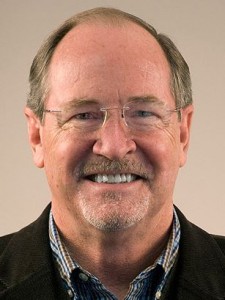Editor’s note: This is the third of four guest posts on the future of teachers unions.
by Gary Beckner

We are at a critical crossroads on the path to education reform in America. Stakeholders from all walks of life and political stripes are beginning to understand that in order to compete in a global economy we must focus on choice and technology to prepare our students for the future.
Likewise, we must also recognize that in order to drive needed change in instruction we must also examine how the teacher workforce is represented. Just as a one-size-fits-all system is not working for students, a labor union model solely fixated on protecting the status quo is no longer serving the needs of all educators in a modern workforce.
Choices in education have opened up avenues for advancing the teaching profession like never before. Virtual schools, technology, and non-traditional charter schools allow teachers to set new schedules and adapt their vision for education to a school that meets their specific needs. These innovations have brought new experienced professionals into the profession and have allowed other talented educators the ability to stay on in different capacities.
According to a membership survey by the Association of American Educators, the non-union teacher organization that I lead, teachers support laws that advance choice and promote options. For example, 68 percent of member educators support an Indiana law that provides a tax credit to parents who send their children to a private or parochial school of their choice. Similarly, 74 percent of survey respondents support Arizona’s Empowerment Scholarship Accounts, which allow parents of special-needs students to use state education dollars in a school that meets the student’s needs.
Despite this groundswell of support from educators themselves, the nation’s largest teacher unions, the National Education Association and the American Federation of Teachers, continue to stand in the way of commonsense education reform for the sake of preserving their own monopoly. Not only is this harmful to America’s students, it degrades the professionalism of one of the most revered career choices.
Unfortunately, under this union model wholly devoted to preserving an outdated system, nearly all reform efforts are blocked. Excellent teachers are not rewarded or given meaningful feedback, degreed professionals with a depth of experience are turned away from the classroom, and teachers searching for flexibility through technology or non-traditional schools are struggling to keep their schools open. Educators, especially younger educators, are no longer buying in to the assembly line model that has plagued our system for years and are now fleeing the unions in record numbers.
In the wake of a rapidly changing profession and educational climate, we need to embrace professional associations for teachers as the wave of the future. Recognizing that teachers require both a voice in the reform dialogue and needed benefits, professional associations offer a modern approach to representation and advocacy and promise a new era of professionalism where teachers are given a proper seat at the table.
Founded in 1994 by a group of nationally recognized educators, AAE was created as an alternative professional organization, not a competing labor union. Our founding members believed the teacher unions had lost their way and their focus on divisive elections and combating positive change had given teachers a bad reputation. Teachers are individual professionals with ideas and recommendations to bring to the policy table, not a mouthpiece for partisan politics. It is this ethos that has led AAE to serve teachers who want to be part of the solutions in education policy.
By offering teachers needed benefits, including professional liability insurance and professional development, AAE is able to offer membership in an organization that is committed to the needs of both teachers and students. In contrast to the teacher unions, AAE does not spend a dime of member dues on partisan politics nor do we support controversial agendas unrelated to education. We are a member-driven organization committed to representing an authentic classroom teacher voice.
Former NEA President Bob Chase once remarked, “[NEA has] used our power to block uncomfortable changes, to protect the narrow interest of its members and not to advance the interests of student and schools.” The Association of American Educators has a far different mission. It’s high time we embrace true professionalism as an essential part of the education reform movement.
Gary Beckner is the Executive Director and Founder of the Association of American Educators.
Coming tomorrow: Doug Tuthill, president of Step Up For Students and the former president of two teachers unions.


